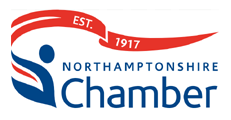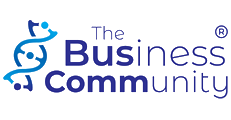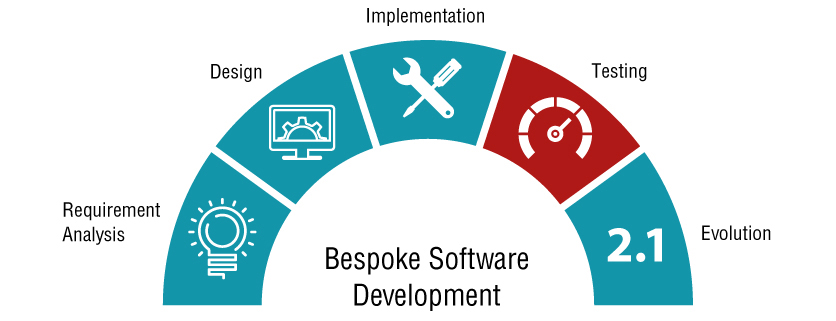https://www.web-alliance.co.uk/human-resource-management-softwareAnalytics Artificial Intelligence (AI) Bespoke CRM Business Intelligence (BI) Campaign Campaign Management Cloud-Based CRM Connector Contact Custom Business Solution Customer Journey Customer Relationship Management (CRM) Customisation Dashboard Deployment Digital Transformation Enterprise Resource Planning (ERP) Export Field Go-Live Import Lead Marketing Automation Natural Language Processing Off-the-Shelf On-Premises Pipeline Sandbox Staging Scalability Social Integration Software as a Service (SaaS) Third-Party Integration Trigger Unified Interface (UI) User Interface User Permissions Workflow
Web Alliance Ltd's CRM Glossary: A Guide for Beginners in Business Software. If you're new to CRM and business software, some of the terminology used can be bewildering. To assist you, we have developed a CRM Glossary that outlines the most commonly used terms and jargon. Check out the complete glossary below to quickly navigate through the complexities.
Account
Account in CRM software refers to a record that contains information about a company or an organisation. It is used to store details such as the company's name, address, contact information, and other relevant data that can help in managing the company's interactions with its customers.
Apart from this basic information, accounts in CRM software can also include additional information such as the industry the company operates in, the number of employees, revenue data, and other relevant metrics. This information can be used to segment and target specific groups of customers or to gain insights into the company's performance over time.
Activities
Activities in CRM software refer to the various tasks, actions, and interactions that take place within the system. These activities can be used to track and manage all aspects of customer relationships, from initial contact to ongoing communication and support. Some examples of activities in CRM software include:
- Creating and updating customer profiles
- Logging customer interactions, such as phone calls, emails, and meetings
- Scheduling follow-up tasks and reminders
- Managing sales leads and opportunities
- Tracking marketing campaigns and responses
- Analysing customer data and trends
By utilizing activities in CRM software, businesses can streamline their customer management processes and provide more personalised and effective service. Additionally, the ability to track and analyze customer interactions can provide valuable insights into customer behavior and preferences, helping businesses to make more informed decisions and improve overall customer satisfaction.
Analytics
Analytics is a crucial aspect of CRM software, as it allows businesses to gain valuable insights into their customer interactions and behavior. By analyzing data on customer engagement, sales trends, and customer feedback, businesses can make informed decisions that help improve customer satisfaction and loyalty. Here are some key points to consider when discussing the meaning of analytics in CRM software:
- Analytics provides businesses with a real-time view of their customer interactions, allowing them to identify trends and patterns that can inform their marketing and sales strategy.
- By analyzing data on customer preferences and behaviors, businesses can create personalised experiences that enhance customer satisfaction and loyalty.
- Analytics can help businesses identify areas where they are falling short in their customer service or support, allowing them to take corrective action.
- CRM software with robust analytics capabilities can also help businesses identify potential sales opportunities, such as customers who are ready to upgrade or purchase additional products or services.
Artificial Intelligence (AI)
Artificial Intelligence has revolutionised Customer Relationship Management (CRM) by providing advanced capabilities for data analysis, automation of repetitive tasks, and predictive analytics. AI-powered CRM systems can provide personalised customer experiences, improve lead generation and conversion rates, and optimise customer service. These systems can also analyze customer data to provide insights into customer behavior and preferences, allowing businesses to better understand and target their customers. Overall, AI in CRM can help businesses improve their customer relationships and increase profitability.
Bespoke CRM
Bespoke or Custom CRM refers to a customised customer relationship management system that is tailored to meet the specific needs of a business. This type of CRM is designed to fit the unique requirements and processes of a company, allowing for greater efficiency and effectiveness in managing customer interactions. A bespoke CRM can be developed in-house or created by a third-party provider, and it may include features such as automated workflows, data analysis and reporting, and integration with other business systems. By using a bespoke CRM, companies can improve their customer relationships and increase their overall profitability.
Business Intelligence (BI)
Business Intelligence plays a crucial role in Customer Relationship Management (CRM). It provides insights into customer behavior, preferences, and needs, helping businesses to make better decisions and improve customer satisfaction. With the help of Business Intelligence, businesses can analyze customer data, identify patterns, and trends, and use this information to tailor their marketing strategies to meet the needs of their customers. This, in turn, helps to build stronger relationships with customers and increase sales. Business Intelligence tools can also help businesses to track their performance and identify areas for improvement in their CRM strategies. Overall, Business Intelligence is essential for businesses looking to improve their CRM capabilities and gain a competitive advantage in the market.
Campaign
A campaign refers to a sequence of marketing initiatives, including:
- Social media marketing
- Email marketing
- Print/Online ads
- Direct mail
- Events
- Product launches
The primary objective of these initiatives is to raise awareness about your brand, product, and/or services.
Campaign Management
Campaign Management in software refers to the process of planning, executing, tracking, and analyzing marketing campaigns using a software application. This software is designed to automate and streamline the process of creating, managing, and measuring the effectiveness of marketing campaigns across various channels, such as email, social media, mobile, and web.
Cloud-Based CRM
A cloud-based CRM (Customer Relationship Management) system is a software solution that is hosted in the cloud and accessed over the internet. Cloud-based CRMs offer several benefits over traditional on-premises CRM systems, including:
Accessibility: Cloud-based CRMs can be accessed from anywhere with an internet connection, making it easy for remote teams to collaborate and for salespeople to access customer data while on the go.
- Scalability: Cloud-based CRMs can easily scale up or down based on business needs, without the need for hardware upgrades or additional IT staff.
- Cost-effectiveness: With no hardware or software to purchase, cloud-based CRMs can be more cost-effective for small and medium-sized businesses.
- Security: Cloud-based CRMs typically have robust security measures in place to protect customer data from cyber threats.
Web Alliance provides the best cloud-based CRM solution in the UK.
Connector
When it comes to CRM (Customer Relationship Management), a connector plays a vital role in ensuring that all the different systems and platforms are integrated seamlessly.
A connector is a software application that enables two or more systems to communicate and share data with each other. In the context of CRM, a connector allows the CRM system to interact with other systems, such as marketing automation, e-commerce, and customer service platforms.
Contact
Contacts are an essential aspect of any business, as they enable companies to maintain relationships with customers, suppliers, and colleagues. Managing contacts efficiently can help businesses to streamline their operations and improve overall productivity. Here are some additional points to consider when managing contacts:
It is important to keep contact information up-to-date to ensure that communication is effective.
Categorizing contacts based on their business role can help businesses to target their marketing efforts more effectively.
Some contact management systems offer features such as lead scoring, which can help businesses to identify the most promising leads.
Integrating contact management with other business systems, such as sales and marketing automation, can help businesses to improve their overall workflow and efficiency.
Finally, businesses should ensure that they comply with relevant data protection regulations when managing contact information.
Custom Business Solution
If you are looking for a tailored solution to meet the unique needs and requirements of your business, a custom business solution may be the way to go. Here are some benefits of opting for a custom business solution:
Personalisation: A custom solution is designed specifically for your business, taking into consideration your industry, customer base, and goals. This means that you can get a solution that is tailored to your specific needs and preferences.
- Scalability: As your business grows and evolves, your needs may change. A custom solution can be designed to scale with your business, ensuring that it continues to meet your needs as you grow.
- Integration: A custom solution can be integrated with your existing systems and processes, making it easier to manage and reducing the risk of errors or duplication.
- Competitive edge: A custom solution can give you a competitive edge by providing you with unique features and functionality that are not available in off-the-shelf solutions.
Overall, a custom business solution can provide you with a tailored and flexible solution that meets your unique needs and helps you achieve your business objectives.
Customer Journey
In CRM, the customer journey refers to the entire process that a customer goes through when interacting with a company. This can include everything from initial contact with the company to post-purchase interactions. The customer journey is important because it helps companies to better understand their customers' needs and preferences, and to tailor their marketing, sales, and customer service efforts accordingly. By mapping the customer journey, companies can identify areas where they need to improve their processes or provide better support to their customers, ultimately leading to greater customer satisfaction and loyalty.
Customer Relationship Management (CRM)
Customer Relationship Management (CRM) refers to the strategies, processes, and technology used by businesses to manage and analyze interactions with customers throughout their entire lifecycle. The goal of CRM is to improve customer satisfaction, increase customer retention, and ultimately drive sales growth. This involves collecting data on customer interactions and behaviors, analyzing that data to gain insights, and using those insights to personalise and optimise customer experiences. CRM systems may include tools for managing customer data, sales automation, marketing automation, and customer service.
Are you currently using spreadsheets but want to move to a CRM system? – Click here to find out more.
Customisation
Customisation in software refers to the ability to modify or tailor software according to specific needs or preferences. This can include changes to the user interface, functionality, or behavior of the software. Customisation is often achieved through configuration options, scripting, or programming interfaces provided by the software. The goal of customisation is to provide a more personalised and efficient user experience, and to meet the unique needs of different users or organisations.
Dashboard
In software, a dashboard is a user interface that provides a graphical representation of key performance indicators, metrics, and data points relevant to a particular business process or function. Dashboards are typically customizable and allow users to quickly and easily track their progress towards specific goals, identify trends and patterns, and make informed decisions based on real-time data. They are commonly used in business intelligence, project management, and data analytics applications. Dashboards can also be used to display information from multiple sources, making it easier to gain insights and take action based on a comprehensive view of the data.
Deployment
Deployment in software refers to the process of making a software application available for use. It involves moving the application from a development environment to a production environment where it can be accessed and used by end-users. This process may include tasks such as installing the software, configuring it to work with other systems, and ensuring that it is secure and stable. Deployment is a critical step in software development as it allows developers to release their applications to the public and deliver value to their users.
Digital Transformation
Digital Transformation is the integration of digital technology into all areas of a business, resulting in fundamental changes to how businesses operate and deliver value to customers. Customer Relationship Management (CRM) is a strategy that companies use to manage interactions with customers and potential customers. Digital Transformation CRM involves the adoption of digital technologies to enhance and streamline the CRM process, allowing companies to better understand their customers, improve customer engagement, and ultimately increase customer satisfaction and loyalty. It involves the use of tools such as automation, data analytics, and artificial intelligence to optimise the customer experience and drive business growth.
Enterprise Resource Planning (ERP)
Enterprise Resource Planning (ERP) is a software system that integrates and manages all core business processes, including finance, human resources, procurement, manufacturing, and supply chain management. It provides a centralised database where all data is stored and accessible by different departments. ERP systems automate and streamline processes, helping organisations improve efficiency, reduce costs, and make better-informed decisions. They also offer real-time data visibility and analysis, enabling organisations to respond quickly to changing business needs.
Export
In CRM, Export refers to the process of transferring data from the CRM system to another application or file format. This can be useful for generating reports, creating backups, or sharing data with other systems. The exported data can include a variety of information such as customer profiles, sales reports, and marketing data. CRM systems typically provide users with options to customise the exported data to meet their specific needs. Overall, exporting data from CRM can help businesses make informed decisions and improve their operations.
Field
In CRM, a field is a specific piece of data that is stored for a particular record or entity. It represents a single attribute of that record, such as a name, address, or phone number. Fields can be customised to match the specific needs of a business or organisation, and can be used to store a wide variety of information, such as dates, numbers, and text. They are essential for organizing and managing data within a CRM system, and can be used to facilitate reporting, analysis, and automation.
Go-Live
Go-live in CRM refers to the point in time when a new CRM system or feature is launched and becomes operational for users. This is typically the culmination of a long period of planning, development, and testing, and often involves migrating data from an old system to the new one. Once the system is live, users can begin using it to manage customer relationships, track sales, and perform other important business functions. It is important to have a solid plan in place for managing the go-live process to ensure a smooth transition and minimise disruption to operations.
Import
In CRM, "Import" refers to the process of bringing data from an external source into the CRM system. This data can include information such as contact details, leads, accounts, and more. Importing data into a CRM system can help businesses streamline their operations by centralizing their data in one location. It also allows for easier tracking of customer interactions and more accurate reporting. Importing data is typically done through a CSV or Excel file, and CRM systems often have tools to help users map the fields in the import file to the corresponding fields in the CRM.
Lead
In CRM, a lead is a potential customer who has shown interest in a product or service. It is someone who has provided their contact information or has been identified as a potential customer through marketing efforts. Leads are important because they can be nurtured and turned into paying customers. CRM systems often have tools and features to help businesses manage and track leads, such as lead scoring, lead segmentation, and lead follow-up. By effectively managing leads, businesses can improve their sales and revenue.
Marketing Automation
Marketing automation in CRM refers to the use of technology and tools to automate repetitive marketing tasks such as email campaigns, social media posting, lead generation, and customer segmentation. This allows businesses to optimise their marketing efforts and engage with customers more effectively. By automating these tasks, businesses can save time, increase efficiency, and improve their overall ROI. Marketing automation in CRM also allows for more personalised and targeted marketing campaigns, as businesses can analyze customer data and behavior to create tailored messages and content.
Natural Language Processing
Natural language processing is an area of artificial intelligence (AI) processes and refers to computers’ ability to dissect, understand, analyse and interpret meaning from human language (spoken or written).
Off-the-Shelf
Off-the-Shelf in CRM refers to software solutions that are readily available and can be easily implemented without the need for customisation or development work. These solutions are designed to meet the common needs of businesses and are usually pre-built with features such as contact management, sales automation, and customer service. Off-the-Shelf CRM solutions are often less expensive than customised ones, and can be quickly deployed, making them a popular choice for small and medium-sized businesses that need to streamline their customer relationship management processes. Comonly used Off-the-Shelf are: HubSpot, Zoho, NurseBuddy, SalesForce
On-Premises
On-Premises in CRM refers to a software deployment model where the CRM software is installed and run on the customer's own hardware and servers, rather than being hosted and managed by a third-party vendor on the cloud. This approach gives customers more control over the software and data, as well as the ability to customise and integrate it with other systems on their own infrastructure. However, it also requires more IT resources and expertise to set up, maintain, and secure the software, as well as potentially higher upfront costs.
Pipeline
In CRM (Customer Relationship Management), a pipeline refers to the stages that a sales lead goes through before becoming a customer. It is a visual representation of the sales process that helps sales teams track and manage their sales activities. A typical pipeline consists of various stages such as lead generation, qualification, proposal, negotiation, and closed deals. Each stage has its own set of tasks and activities that need to be completed before moving to the next stage. By using pipelines, sales teams can better understand where each lead is in the sales process and can focus their efforts accordingly to convert leads into customers.
Sandbox
In CRM, a sandbox refers to a testing environment that allows users to experiment with new features or changes to their CRM system without affecting the live production environment. It is a separate instance where users can make changes, test customisations, and try out new configurations before implementing them in the live environment. This helps to minimise the risk of disrupting business operations and ensures that any changes made are thoroughly tested before being deployed. Sandboxes are commonly used in CRM development and implementation projects to ensure that changes are properly tested and validated before being released to end-users.
Staging
Staging in CRM refers to the process of setting up a workflow that represents a series of stages or steps in a customer's journey. Each stage represents a specific phase of the customer's interaction with the company, such as lead generation, qualification, and conversion. The purpose of staging is to track the progress of customers through these stages and to ensure that they receive the appropriate level of service and attention at each stage. This helps companies to manage their customer relationships more effectively and to provide better customer experiences.
Scalability
Scalability in CRM refers to the ability of the system to handle an increasing amount of data and users without compromising performance. This is especially important for businesses that are experiencing growth and need a CRM system that can keep up with their expanding customer base. A scalable CRM system should be able to easily add new users, integrate with other software solutions, and handle large amounts of data without slowing down or crashing. By ensuring scalability in CRM, businesses can continue to effectively manage their customer relationships and support their growth.
Social Integration
Social integration in CRM refers to the process of incorporating social media channels into a company's customer relationship management strategy. This allows businesses to more effectively engage with their customers, as social media has become an increasingly important platform for communication. By integrating social media into their CRM systems, businesses can monitor and respond to customer feedback, as well as track customer interactions and behavior on social media channels. This can ultimately lead to improved customer satisfaction and loyalty, as well as increased sales and revenue.
Software as a Service (SaaS)
Software as a Service (SaaS) is a software delivery model in which applications are hosted by a third-party provider and made available to customers over the internet. This means that users can access the software from anywhere, at any time, without having to install or maintain it on their own devices. SaaS is typically subscription-based, with customers paying a monthly or annual fee for access to the software. This model is popular for its convenience, accessibility, and cost-effectiveness, as it eliminates the need for businesses to invest in expensive hardware and IT infrastructure.
Third-Party Integration
Third-party integration in CRM refers to the process of connecting a customer relationship management (CRM) system with other external applications or software. This integration allows for the exchange of data and information between different systems, streamlining workflows and improving the overall efficiency of the organisation. By integrating third-party applications with CRM, businesses can enhance their customer experience, increase sales, and improve their bottom line. Some popular third-party integrations in CRM include marketing automation tools, social media platforms, and accounting software.
Trigger
In CRM, a trigger is an event or action that initiates a specific response or set of actions. Triggers are used to automate processes and streamline workflows. For example, a trigger could be set up to send an email to a customer when they make a purchase, or to create a task for a sales representative when a new lead is added to the system. Triggers can be set up in various ways, such as through a workflow rule or an Apex trigger. By using triggers, businesses can improve efficiency and ensure that important tasks are completed in a timely manner.
Unified Interface (UI)
Unified Interface (UI) is a user interface framework that provides a consistent and modern interface across all devices and platforms in (CRM). It offers a responsive design that automatically adjusts to the device being used, such as desktops, tablets, and smartphones. The UI is designed to provide a seamless and efficient user experience, allowing users to access the same features and capabilities regardless of the device they are using. With the UI, users can easily navigate through CRM, view and edit records, and perform actions quickly and efficiently.
User Interface
The User Interface (UI) in CRM (Customer Relationship Management) systems is the graphical interface that allows users to interact with the software. It provides a visual representation of data and functionality for managing customer relationships. A well-designed UI can improve user productivity, reduce errors, and increase user satisfaction. Some key elements of a good UI include easy navigation, clear labeling and icons, and consistency in design. Additionally, customisation options allow users to tailor the UI to their specific needs and preferences. Overall, a well-designed UI is critical for effective use of CRM software.
User Permissions
In a CRM system, user permissions play a crucial role in maintaining data security and privacy. Admins can assign different levels of access to different users based on their roles and responsibilities within the organisation. This helps to ensure that sensitive information is only accessible to authorised personnel. Common permission settings include read-only access, edit access, and admin access. It is important for organisations to regularly review and update user permissions to ensure that they align with the current needs and structure of the business.
Workflow
The workflow in CRM typically consists of several stages, starting with lead generation and ending with customer retention. In between, there are stages such as lead qualification, sales, and customer service. Each stage involves different processes and tools, such as lead scoring, sales forecasting, and ticketing systems. By implementing a CRM workflow, businesses can streamline their customer management processes, improve customer satisfaction, and ultimately drive revenue growth.
If you are interested to gain knowledge about Custom Database Development and need a bespoke software for your company you can call us on 0800 677 1786
Dedicated Quick Support
We have a dedicated support department. You'll get access to our online support system and support contacts, enabling you to raise a ticket for the issues or changes. We resolve 80% of the issues within a couple of hours. The remaining 20% within around 48 – always keeping you up to date.We include three months of free support.
Truly Bespoke
Our software solution is fully bespoke to your specific business need, and you’ll be the owner of the proposed bespoke system. Our experienced account managers are quickly able to learn your existing working style and provide you with the completely Bespoke Software which will learn how you work so that you don't have to learn the software.
Latest Technology
The technology used in building your tailored software will be the latest at the industry standard and we keep updating the codebase according to the changes in the marketplace to be at the top of the game and your system will be based on up-to-date technology and NOT end up with an unsupportive system.
Device independent and compatibility
We make sure the custom software we built is fully responsive and tested on most of the possible devices ranging from Desktop, Laptop, Mobile Devices and all kinds of browsers, so it can give you all freedom to use your tailored system from any device and from anywhere you want.






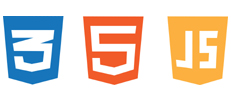
Related Articles
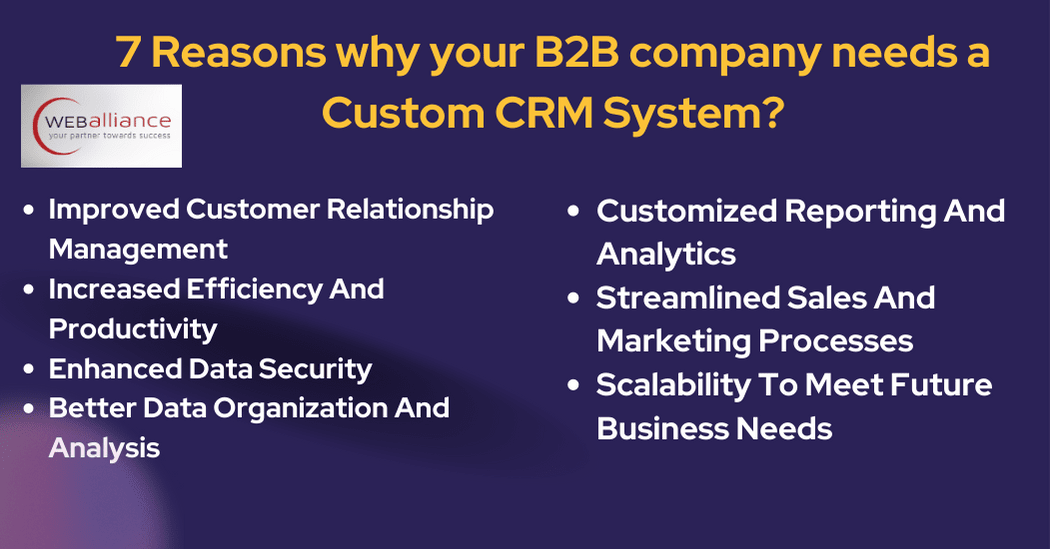
7 Reasons why your B2B company needs a Custom CRM …
If you are a business owner, you must have known about Custom CRM system and …
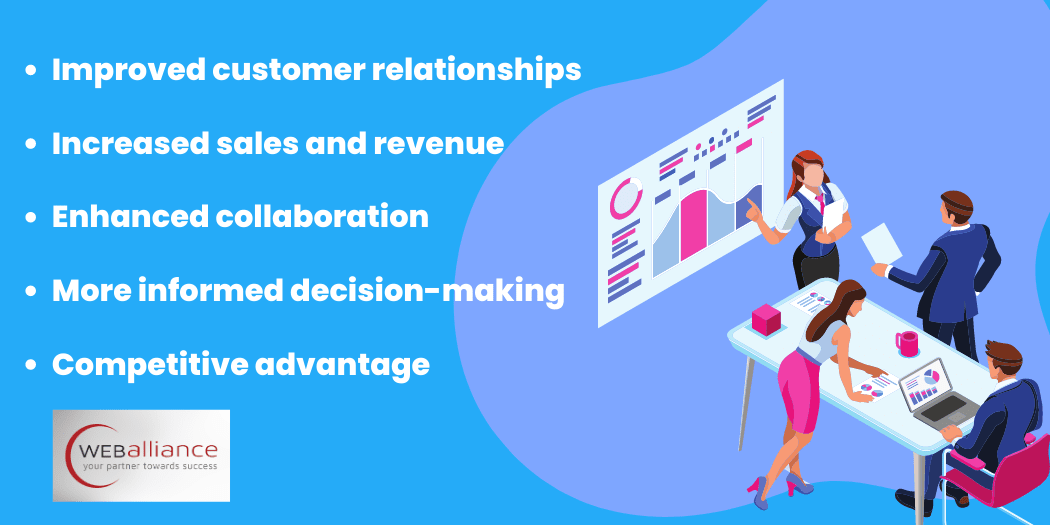
Why your business needs a back-office CRM and how …
In today's competitive business landscape, managing customer relationships …

The Benefits of Using a Software System in …
Are you a recruitment agency and working without a Software? And want to invest …








